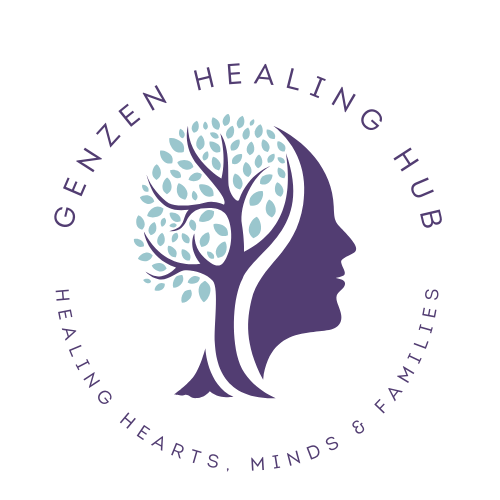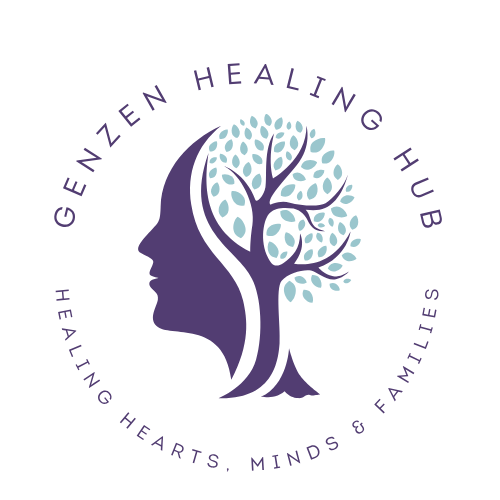There are a few different ways that hypnosis can be delivered:
1. Guided Hypnosis
At GenZen Healing Hub, our guided hypnosis audios are designed to bring the life-changing benefits of personalised hypnotherapy straight to you. Each recording is carefully curated and customised around specific subject matter and titles, ensuring they meet individual needs as closely as possible. These audios have been created to make hypnotherapy accessible to everyone, regardless of your time schedule or financial budget. Think of them as 'therapy in your pocket'—available 24/7 to support your well-being whenever you need it.
What sets our recordings apart is the inclusion of accompanying explanatory audios that go beyond the hypnosis session itself. These explanatory tracks provide a deeper understanding of the related title and themes, helping you engage not just your subconscious but also your conscious mind. This allows you to fully comprehend and integrate the information, enhancing your ability to bring desired changes into your reality. With this unique approach, our recordings offer both the soothing transformation of guided hypnosis and the empowering clarity of conscious understanding, helping you on your personal development journey.
2. Personalised One-on-One Hypnotherapy
Personalised one-on-one hypnotherapy sessions are a therapeutic way to explore and cultivate personal growth. At their core, they are designed entirely around the individual's specific needs, goals, and challenges. A qualified hypnotherapist works closely with you in a private setting, creating a safe and comfortable space to fully focus on what’s important to you. These sessions are tailored to address areas in your life where you feel you need support, whether that’s easing anxiety, overcoming fears, building confidence, or fostering emotional resilience.
Hypnotherapy works by gently guiding your mind into a deeply relaxed yet focused state, often referred to as a trance. While you remain fully aware and in control, this state allows you to access the subconscious mind more easily, tackling underlying patterns and beliefs that may be holding you back. Together with your hypnotherapist, you’ll work on re-shaping these patterns to align with the changes you want to see in yourself. It’s a process based on collaboration and trust, where open communication shapes the direction of each session.
The benefits of personalised hypnotherapy can be profound. It offers a space to explore your inner world in a way that feels supportive and empowering. Many individuals find it helpful for reducing stress, improving sleep, or managing habits they wish to change. Others use it as a tool for self discovery and personal development, unlocking inner potential and enhancing their overall sense of well-being.
Each session is as unique as the person taking part, ensuring that the focus always remains on what feels right for you. Through this individualised approach, hypnotherapy can bring clarity, balance, and a renewed sense of confidence into your life.
3. Self-Hypnosis
Self-hypnosis is a self-directed technique where individuals learn to guide themselves into a state of focused relaxation, often referred to as a hypnotic state. This method allows people to access their subconscious mind in a gentle and controlled way, making it an effective tool for relaxation, stress management, and enhancing overall well-being.
The process of self-hypnosis typically involves creating a calm environment, focusing your thoughts inward, and using techniques like visualisation, affirmations, or deep breathing. By entering this state of heightened awareness and relaxation, you can work on shifting patterns or beliefs that may no longer serve you. The beauty of self-hypnosis is that it puts the control entirely in your hands, giving you the flexibility to practise whenever and wherever it feels right for you.
The benefits of self-hypnosis can be wide-ranging and deeply personal. For some, it’s a gentle way to alleviate stress or find moments of calm in a busy life. Others use it to nurture a positive mindset, improve focus, or support personal goals such as boosting confidence or improving sleep. Because it’s self-led, self-hypnosis can be tailored entirely to your needs, empowering you to engage with your own well-being on your terms.
This practice can become a valuable part of your self-care routine, offering a cost-effective and flexible approach to achieving balance and cultivating a sense of inner peace. Over time, self- hypnosis can help foster a deeper connection with yourself, encouraging clarity, resilience, and a renewed sense of control over your mental and emotional state.



